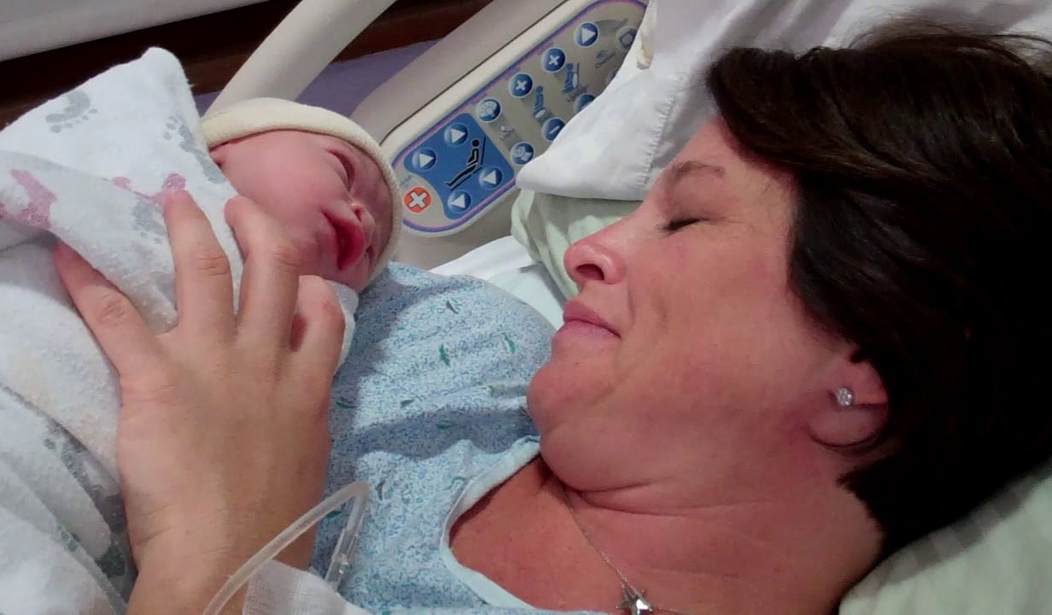“It’s pre-eclampsia,” I said to my husband. It was 2013, two years before we even began trying for a baby, and we were watching a very pregnant Lady Sybil complain of a persistent headache on Downton Abbey. Growing up with a nurse for a mother plants a seed of intrigue for all things medical. Combine that with my passion for Call the Midwife and it was easy enough to deduce that Lady Sybil wasn’t going to make it past the birth of her child.
It took me a while into adulthood to realize that not everyone is equipped with the same level of medical knowledge that I have. I find that horrifying, not because I’m prideful but because in the day and age of big medicine patients are required to be their own best advocates. Anyone who has gone through, or closely witnessed a loved one go through the medical system has firsthand knowledge of how quickly and easily medical professionals can make life-threatening errors. Take, for instance, Dr. John Vaclavik of Monmouth, N.J., recently profiled in the NPR story Focus On Infants During Childbirth Leaves U.S. Moms In Danger. In 2011 Dr. Vaclavik discharged one new mother with a severely infected vaginal tear; soon she was back in the hospital with necrotizing fasciitis, a flesh-eating bacteria that killed her. Vaclavik’s legal answer for why he discharged a woman with a severe infection? It was the nurses’ fault:
According to court documents, he said nurses failed to inform him about Hansen’s symptoms and that if he’d known her vital signs weren’t stable, he wouldn’t have released her.
His colleague, friend, and patient, nurse Lauren Bloomstein, was unaware of this gross medical error when she decided to have Vaclavik deliver her baby later that same year. Bloomstein’s story is a list of tragic circumstances: Vaclavik misdiagnosed severe belly pain as acid reflux; her doctor-husband Larry was hesitant to ask questions lest he “overstep” his bounds; labor and delivery took place on a weekend. The last one is especially frightening, but the reality is that the best doctors and nurses don’t want to work weekends and the ones who do are anxious to get in and out and on with their lives:
Hospitals may be staffed differently on weekends, adding to the challenges of managing a crisis. A new Baylor College of Medicine analysis of 45 million pregnancies in the U.S. from 2004 to 2014 found mothers who deliver on Saturday or Sunday have nearly 50 percent higher mortality rates as well as more blood transfusions and more perineal tearing. The “weekend effect” has also been associated with higher fatality rates from heart attacks, strokes and head trauma.
Vaclavik was only “on call” that weekend. His actual presence at the hospital is not detailed, but the way the story reads indicates he was largely participating in postpartum care via phone. And despite receiving advice from a colleague via phone to get his wife treated by specialists immediately, Larry Bloomstein “had given up on getting a specialist to come to the hospital so late on a Saturday night.”
Not long after, new mom Lauren had a stroke and was diagnosed with HELLP syndrome. She died shortly thereafter. In 2012 the New Jersey Department of Health reviewed Lauren’s records and observed:
“There is no record in the medical record that the Registered Nurse notified [the ob/gyn] of the elevated blood pressures of patient prior to delivery,” investigators found. And: “There is no evidence in the medical record of further evaluation and surveillance of patient from [the ob/gyn] prior to delivery.” And: “There was no evidence in the medical record that the elevated blood pressures were addressed by [the ob/gyn] until after the Code Stroke was called.”
Yet, despite this gross negligence and thanks to bureaucratic and legal practices in the State of New Jersey, Vaclavik continues to practice medicine. His patient register continues to grow and he continues to have admitting privileges at three hospitals, including the one in which Lauren’s tragedy took place. When it comes to Lauren’s death, his only pain is for himself: “I will never forget” Lauren’s death, he said. “… I probably suffer some post traumatic stress from this.”
Becoming a mother is overwhelming. There is so much to learn and do to prepare for the arrival of your little one. A basic understanding of how hospitals and the medical professionals who are delivering your baby work is one of them. New moms and their labor room advocates should also be made aware of conditions that can arise postpartum so they know what signs to look for. Pregnancy is a great teacher: Women learn to trust their bodies and their inner judgement in ways they never have. There is nothing to be scared about when it comes to going into the delivery room, but there is every reason in the world to be informed. And absolutely no reason not to speak up.









Join the conversation as a VIP Member